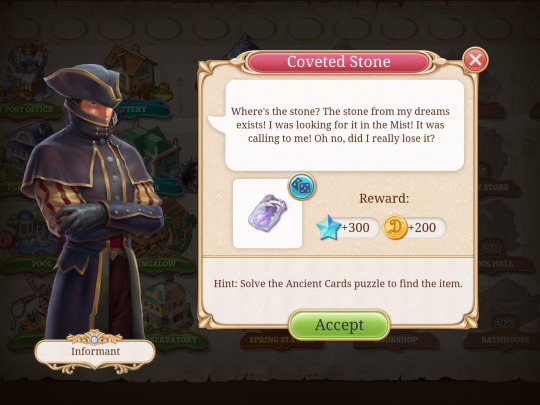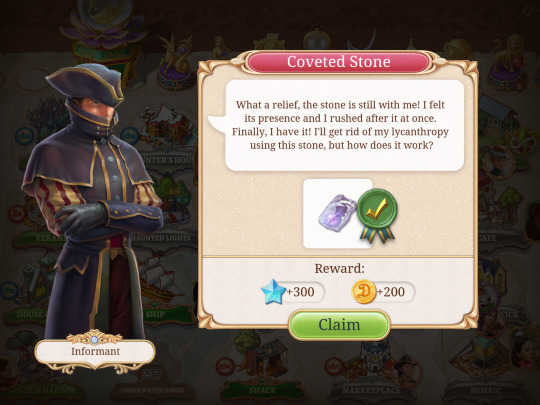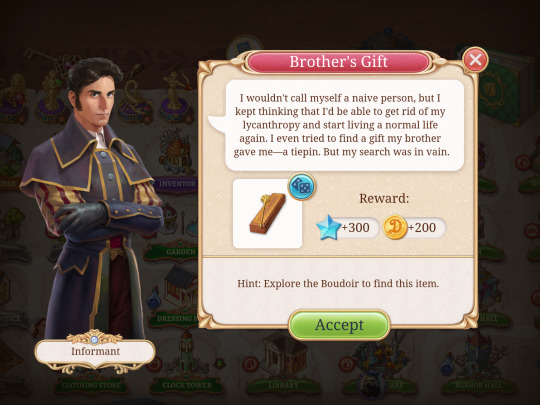#there’s some kind of connection between that: his saviour complex and him being a dangerous force of nature
Note
hi. uh. is this anything
(werewolf poem. it might not be very fitting, i'm genuinely not sure, but i've been seeing some werewolf related stuff on your blog as of late so i'm sending this just in case if you haven't seen it & hopefully the link works bye)
qirinnnnn ouuuughjj ough that is many many things to me… IT FITS!! not 100% but there definitely are parts that fit
it’s. 6 in the morning (randomly woke up) (bad sleep schedule) and i am going to ramble about informant because yay! yippee!
divider from here

“Maybe you’re lost in your skin today, Maybe you’re burning and wish you could tear it all off”
first off i really like how it says “lost in your skin” since he’s quite literally an animal when he turns into the werewolf
second of all it’s not a secret that Informant is so dreadfully ashamed of being a werewolf.
That man would do Anything and i mean Anything to rid of it. (he says it himself too) if i remember the line right he says “i would do anything to crush the beast inside of me”

says this along with it, and he gave me these enchanted chains to put him in if there ever comes a time he turns into one again


I’m not sure if it’s one can be counted since he was under the influence of a parasitic thought (it clouded his every judgment and caused him to go into the mist and turn into the werewolf)
but the absolute desperation in his words to have that stone to try and turn back (it didn’t work) is so crushing. They didn’t talk much about how he felt other than a fleeting mention that he was disappointed and gloomy about his hopes being crushed

he talks a lot about how it’s a hindrance to him and how much he wants to rid of it (he was under the influence here, prodded at his thoughts via realistic dreams)
Also call back to when he confessed to me about being a werewolf at the tower vs him confessing it to his brother down the road (mentioned this in the family analysis here)
one where he directly said “i am the werewolf” at the tower
as opposed to
“don’t tell me the werewolf was..” (his brother’s words)
“yes it was me.” (Informant’s words)
The way he indirectly agreed with his brother instead of stating that he was the werewolf out loud
as if he was ashamed of admitting it, especially to his brother when they were reconciling
Anyway i think it would be an interesting story line if he slowly comes to terms with being a werewolf
#something something. afraid to admit he was someone that caused distress to his family#especially when he tries so hard to be useful to the city#the way he feels dangerous and makes up for it by putting his everything on the line for the city#something about wanting to be remembered as someone who helped than someone who caused destruction#there’s some kind of connection between that: his saviour complex and him being a dangerous force of nature#but i cant make it right now#thank you qirin for sending this ^_^ i love you /p#seekers notes spoilers#Informant Under A Microscope
1 note
·
View note
Note
Can we talk more about nurturing Todd and touch-starved Dirk? It seems there is much to be said.
You are asking a lot. Or rather two separate things that I suspect will dovetail neatly together. Unfortunately that means this answer is going to be long. Fortunately I can wax lyrical on both.
Let’s start with Todd.
We know a few things about Todd. We know Todd was kind of a self-absorbed asshole for a significant portion of his life. We know that he has a tendency to lie, cheat and steal. We know that Todd spent a significant portion of his life putting himself and his own interests ahead of everyone else’s. We know that all of this changed the second Amanda got sick. We know that he carries a tremendous amount of guilt for the things he’s done. We know he is mired in self-loathing.
We also know that he is the first person to help when no one else ever has. We know that he prioritizes Amanda above even his own safety.
Now I suspect some people would assume this is Todd’s version of atonement. I don’t think that’s the case.
Now, don’t get me wrong. People can change. People change all the time. Life and experience shapes and molds us, and we in turn adapt accordingly. But a person’s core personality is still their core personality. You don’t start an ESFJ only to become an ISTJ*.
So I suspect Todd’s caregiver tendencies have always been there. This isn’t counterintuitive. People who are drawn to care for others are more than capable of hurting others, just as a nurturing personality type does not always preclude selfishness.
In fact, caring for others can be a decidedly selfish act. It gives us purpose. It makes us feel good about ourselves. It is a means through which we can showcase love and in turn feel worthy of being loved. Carry this too far and you’re looking at a saviour complex. But keep this reigned in and suddenly there are well-defined parameters to justify our existence.
Either way, it stems from low self-esteem.
I suspect Todd was like this as a child. I suspect he spent a lot of his youth helping. I suspect this is probably something he carried with him into his band. I suspect the band would have fallen apart long before they did had Todd not been around. I suspect a lot of his actions (the lying, the stealing) arose from frustration and resentment. These are both common traits of caregivers. It’s hard not to grow resentful when we expend so much of our energy caring for others but get nothing in return.
And that’s the crux of it, because caretaking is not by definition an altruistic act. People who caretake don’t do so purely from a place of good. They do so to feel useful. They do so to feel needed; wanted. And without that feedback caretaking quickly takes on a much darker tone.
Take Todd and Amanda.
Todd has assigned himself as Amanda’s caretaker. He routinely travels an hour out of his way to visit her. He does her dishes. He likely does her shopping. He pays for her medication. And yet nowhere in that does he allow her autonomy.
Remember what he said to her? You can’t go with them. Not you shouldn’t. Not are you sure it’s safe. You can’t. This is after he dragged her away from her life because he decided she would be safer with him. He has assigned himself as her protector and feels entitled to dictate the terms of her existence. Amanda wasn’t wrong when she said he didn’t care about her. Caring about someone is selfless. Taking care of someone is not.
Dirk’s arrival throws Todd’s life into complete and utter chaos. It’s unsurprising that his first instinct is to reject Dirk outright, to want him gone simply because the disruption is too much to bear. But, of course, Dirk refuses to leave, which leaves Todd on somewhat unfamiliar ground. He’s never had a friend before. Friendship requires selflessness. Todd, I suspect, has only ever had people he’s taken care of (his sister, his bandmates, etc.).
It’s a role he falls instinctively into. Todd needs to feel needed. He needs to make himself feel useful. Look at the first time he met Farah. His first act was to get her a glass of water. It wasn’t something she needed. It was something Todd needed so that he could feel like he was doing something useful.
His relationship with Dirk unfolds in much the same way. He makes himself useful. He bandages Dirk’s minor cuts and scrapes (none of which required bandaging). He is, in fact, the perfect assistant because Dirk requires constant assistance and by assisting Todd can continue to feel needed and useful. At some point it’ll backfire, because codependency is not the cornerstone of a healthy relationship, but for the time being I suspect it is the foundation upon which their friendship is being built.
That all sounds rather hopeless, but character growth can’t exist if a character doesn’t start from a place of imperfection. Todd’s season 1 character arc ending with You Get What You Deserve playing is both fitting and telling. In order for Todd to grow as a character he needs to experience loss. He needs, universally, to atone for his past mistakes. Only then can he begin his journey, and ultimately his journey should end with him becoming a better person. He needs, over the course of however many seasons this show runs, to learn the difference between caring for someone and taking care of someone.
So what does all of this have to do with Dirk being touch-starved?
Well, I’d argue touch-starved isn’t the word we’re looking for. He’s care-starved. And as I mentioned above, this isn’t a good thing. It’s a dangerous setup for a codependent relationship that runs the risk of destroying them both. It also has the potential of fuelling their personal growth storylines so that they eventually end in a place of equality. Only time and Max Landis will tell.
So now let’s talk about care-starved Dirk.
To do that, we need to talk about Dirk’s childhood. More specifically, we need to talk about Dirk’s time in Blackwing.
Because Dirk was taken into Blackwing when he was what, 9? 10? Possibly even earlier and who knows what his childhood was like before then. Now let’s say, for argument’s sake, that Dirk is 36 (Samuel Barnett’s age). He’s been out of Blackwing 16 years now, meaning that he was in their custody for at least the better part of a decade. More specifically, he was in Blackwing custody for the entirety of his adolescent years.
Now we know from Bart that she knew about the others. We also knew she never met them. So it’s reasonable to assume neither has Dirk.
We know for a fact that Dirk has interacted with Col. Riggins. We can assume from his reaction to Todd’s “experiment” request that he has likely interacted with contingent of doctors and scientists. Given the visceral reaction he had to Todd’s request (and to seeing Riggins again) it is also safe to assume that most of his interactions with these scientists and doctors were unpleasant.
In short, Dirk was a lab rat. If you want to get more specific I think it’s fairly safe to say that the vast majority, if not all of Dirk’s formative adolescent (and possibly pre-adolescent) years were spent in CIA custody where the only people he interacted with were the ones using him as a research subject.
Now as someone who has a sister who interacts with research animals on a regular basis, I can assure you that research animals have their basic needs met. They are fed. They are watered. They are looked after when they are sick. They are permitted sleep.
But that’s about it.
They are not socialized (unless an experiment calls for it). They are not educated (unless an experiment calls for it). They are not touched beyond the necessary handling required for a given experiment.
We know that adolescence is a time of significant neurological development. We know that studies have been done examining the long-term psychological consequences of social isolation during adolescence. We can extrapolate from studies done on human research subjects, solitary confinement in prison populations, long-term hospitalization during childhood and adolescence, and the long-term side effects of childhood abuse and neglect. We can look at all of this and reasonably hypothesize that Dirk Gently did not come out of his time in Blackwing unscathed. At the very least he is a deeply traumatized man. It is equally likely he experienced developmental delays and/or impairments as a direct consequence of his captivity.
We also know, based on his comments to Todd, that Dirk doesn’t have friends. That Todd is the closest thing he has ever had. It is reasonable, then, to assume that the vast majority of Dirk’s post-Blackwing life has remained relatively solitary. He has undoubtedly interacted with suspects, victims and possibly the occasional assistant, but nothing that lasted beyond a case and certainly nothing that would provide any sort of emotional connection. Whether this was the will of the universe or a direct consequence of his trauma/impairments remains to be seen. Either way, it is highly unlikely anyone has ever taken care of Dirk, whether it was something as simple as bandaging a cut or providing a sounding board for his theories. And if season 1 taught us anything, it’s that Dirk Gently rather likes having someone take care of him.
He certainly goes out his way to praise Todd for it. You’re quite a good friend. You saved my life. I couldn’t have done it without you. Hell, his desperation for a friend is also indicative of this. And while tender and sweet and something fandom tends to latch onto, it’s not a good thing. What we end up with is a man who needs to be needed taking care of man who likes being taken care of. As I mentioned above, this is not the basis for a healthy relationship. It’s the basis for a codependent relationship. One in which Todd’s caretaker tendencies are rewarded by Dirk’s need for attention/love.
Now I know that’s not what you wanted to hear, but don’t despair, because as I mentioned character growth (on both their parts) is what’ll lead this relationship into something healthy. It’s already started. The basis for their relationship may be flawed, but that doesn’t mean Todd won’t learn to let others take care of themselves (he’s already started by letting Amanda go) or that Dirk won’t learn to stop relying so thoroughly on others (their fight sets the foundation for that).
So eventually we’ll end up with two characters on an equal footing, each bringing their own strengths and weakness that perfectly compliment the other. In the meantime, though, we get Todd bandaging Dirk’s cuts and Dirk preening under the attention, relishing the fact that another human being actually cares, that someone wants to take care of him and keep him safe and run soothing fingers over his cuts and he has never, not in living memory, known that. And because Dirk is Dirk, he will be sure to tell Todd this with ample praise, which will reaffirm the connection between Todd’s sense of self-worth and his ability to take care of others.
TL:DR: The whole thing is going to snowball until it eventually explodes, but hopefully what comes out the other side are two people who complement each other perfectly and are better for having known each other. But as I said, only time and Max Landis will tell.
Basically, it all comes down to this: Ain’t human psychology grand.
Some Notes:
*I use the Meyer’s Briggs personality types only as an example here. I do not mean to imply this is Todd’s personality type, and in fact would discourage anyone from using the MBTI as it is a highly flawed test with significant psychometric deficiencies.
Articles worth reading on the psychological effects of: social isolation, long-term hospitalization, solitary confinement, human research studies.
https://www.ncbi.nlm.nih.gov/pmc/articles/PMC4145882/https://www.ncbi.nlm.nih.gov/pmc/articles/PMC4588096/http://www.beyonddifferences.org/media/uploads/teacher-docs/consequences_of_social_isolation_2015-2016.pdfhttp://steinhardt.nyu.edu/appsych/opus/issues/2015/spring/Corcoranhttp://www.tandfonline.com/doi/abs/10.1080/00221325.1959.10534230?journalCode=vgnt20http://easap.asia/journal_file/9301_V3N1_p9.pdfhttps://en.wikipedia.org/wiki/Human_subject_research
157 notes
·
View notes